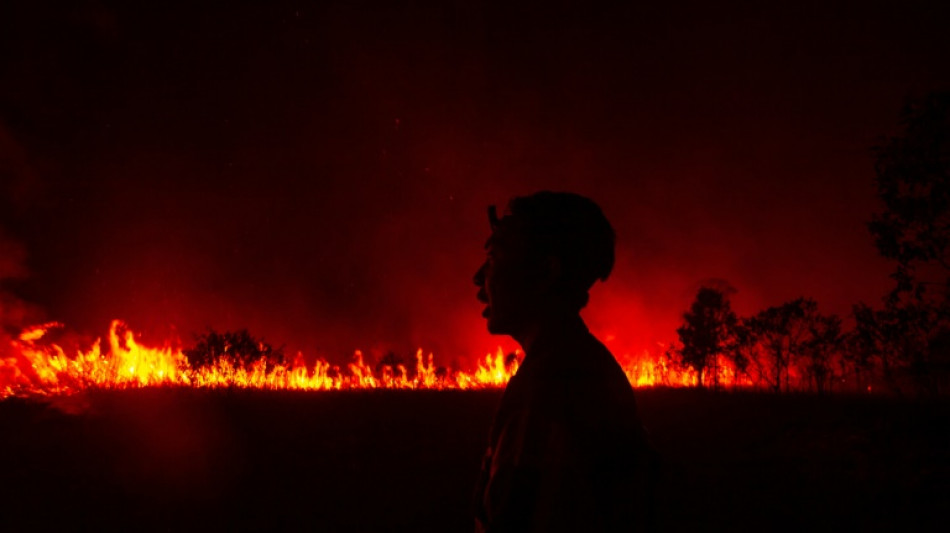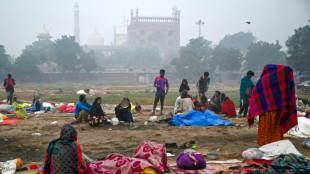

Firefighters battle peatland blazes as haze shrouds Indonesian city
Firefighters on a western Indonesian island were battling large peatland fires on Friday that have covered Palembang, a city of nearly two million people, in a haze for weeks, officials said.
A prolonged dry season has caused higher risks of wildfires on the archipelago nation's major islands, stoking fears of repeat haze-belching forest fires that have also affected neighbouring Malaysia and Singapore in recent years.
The fire has burned through 75 hectares of peatland in the Ogan Ilir regency of South Sumatra province and around the toll road connecting it to Palembang, head of Sumatra island's forest and land fire control Ferdian Krisnanto told AFP.
"That is our estimation because there were two big hotspots last night. (The burning area) could be bigger once we have validated it with satellite image," said Krisnanto.
"From our observation, the peatland is most likely burned by someone".
The fires are often started illegally to quickly and cheaply clear land for cultivation -- particularly for palm oil and pulpwood.
The latest fires, raging for around two weeks, have caused the sky in Palembang to become hazy and reduced visibility for residents, according to an AFP journalist.
The local Palembang administration and hospitals reported an increasing number of patients with respiratory infections, the majority of them children.
Winds also blew ash from the fires into the city, littering its streets and trees.
"I haven't let my child play outside recently because the fire has made the weather hotter," said 35-year-old mother Rudini, who like many Indonesians has one name. "I do not want him to get a nose bleed".
Satellite imagery seen by AFP shows multiple wildfire hotspots south of Palembang as of Friday.
Drained peatlands release greenhouse gases such as carbon dioxide into the atmosphere and produce parched areas that are prone to fires.
The fires in 2015 were among the deadliest on record, cloaking Southeast Asia in toxic smoke for weeks and causing many people to become ill, schools to close, and planes to be cancelled.
R.Verbruggen--JdB



